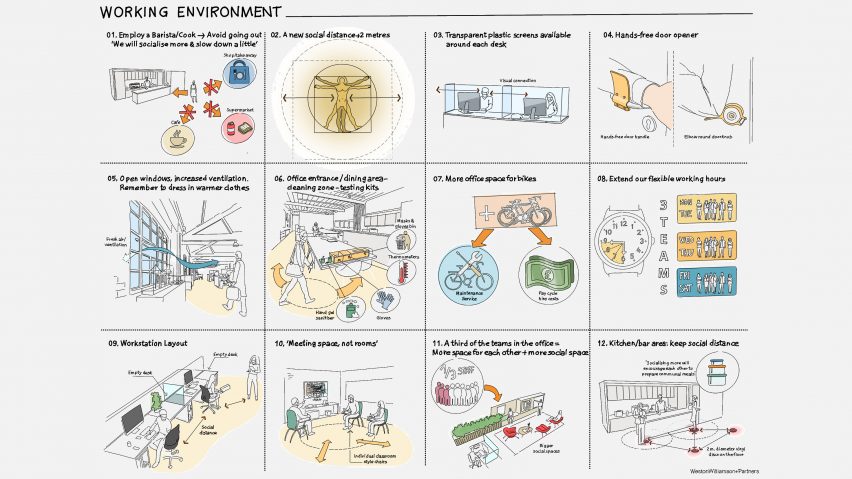
Weston Williamson + Partners envisions social-distancing office
Weston Williamson + Partners has outlined its plans for a social-distancing workplace, with transparent screens around desks, hands-free doors and a barista, to allow employees to safely return to its office following the coronavirus lockdown.
The London-based architecture studio has created graphics to illustrate the adaptions it plans to make to its office to allow its employees to safely return to work.
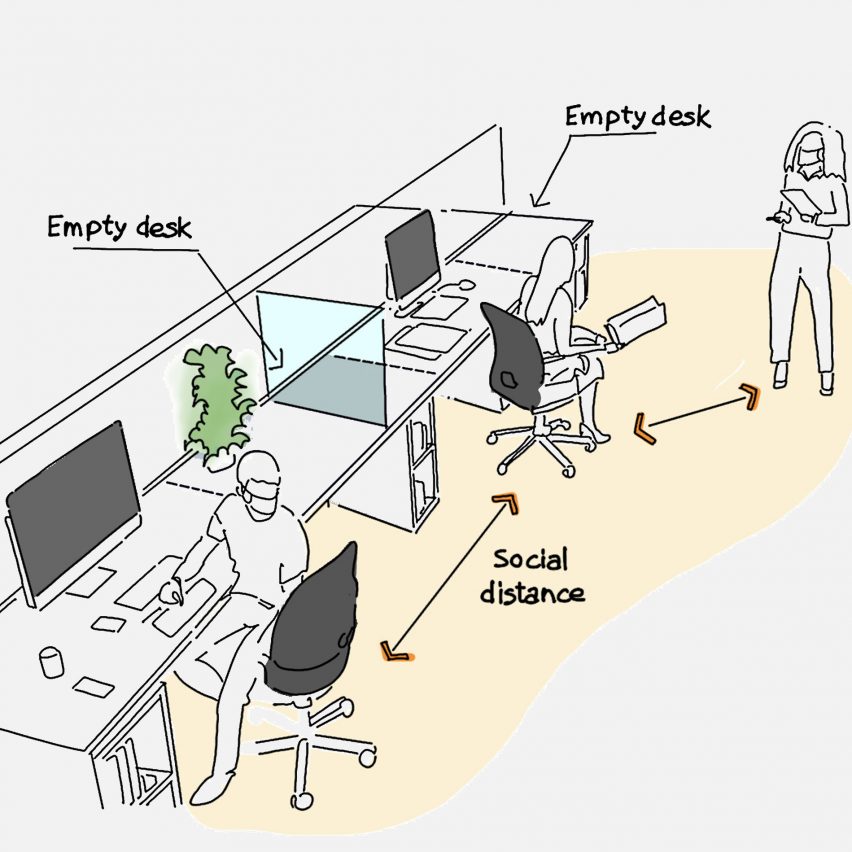
Weston Williamson + Partners intends to combine changes in working practices with physical alterations to its workspace to allow employees that want to return to the office the opportunity to do so.
"The drawings show our response with the focus on safety," explained Chris Williamson.
"We want to give our colleagues the choice," he told Dezeen. "Some are very enthusiastic about moving out of their flats and getting back to some sort of normality. Others have some concerns. We need to be mindful of both. It's a whole new level of flexible working."
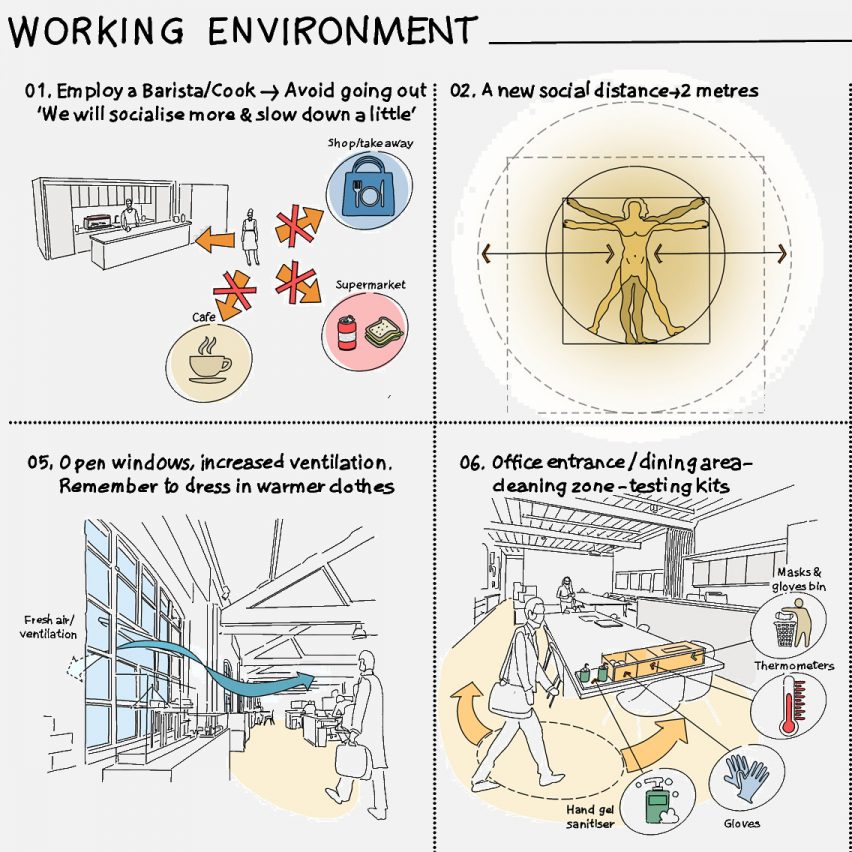
To increase the amount of space available per person, the studio intends on allowing at least half of its 100 staff to work from home each day, with office attendance assigned by day.
The alterations that Weston Williamson + Partners intend to make include installing a cleaning zone within its lobby, placing transparent screens around each desk and adapting doors to allow for hands-free opening.
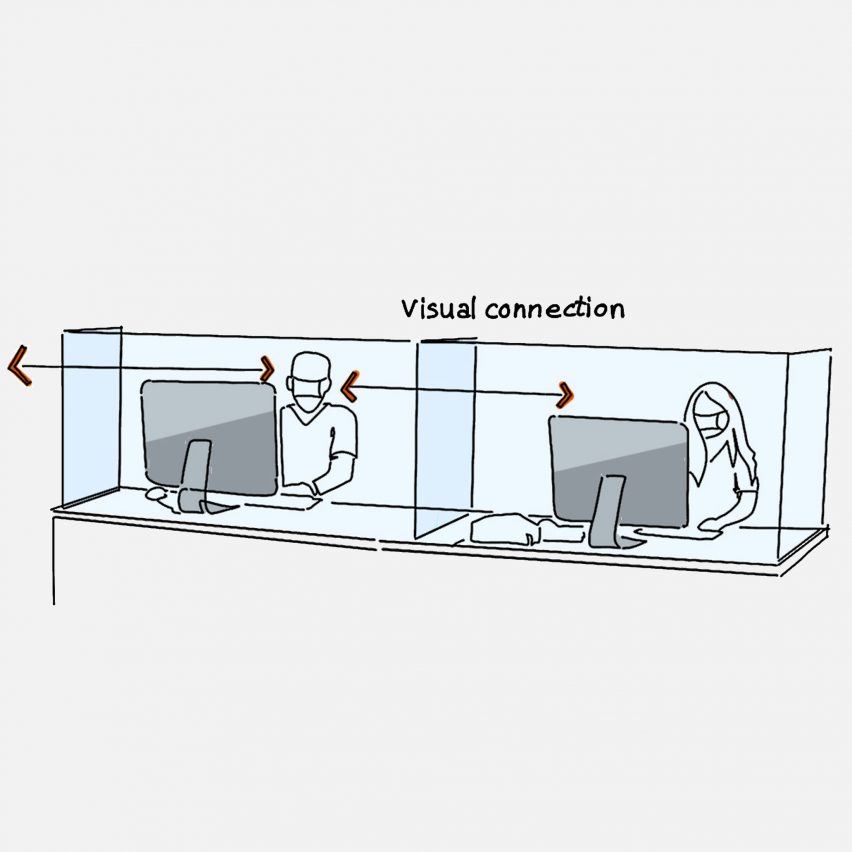
The studio also intends on holding meetings in open areas rather than enclosed meeting rooms and employing a barista and a cook so employees don't have to use a shared kitchen.
Although Weston Williamson + Partners has made its plans based on its own office, Williamson believes that it could serve as a template for other companies trying to figure out how employees can safely return to the office.
"It will depend on the layout of each office, but the drawings we have prepared show what we intend to do at Weston Williamson + Partners and we think they could be useful to other offices," he explained.
"There will be additional difficulties for say Rogers Stirk Harbour, who are on the 14th floor of the Cheesegrater, where vertical circulation will take much longer."
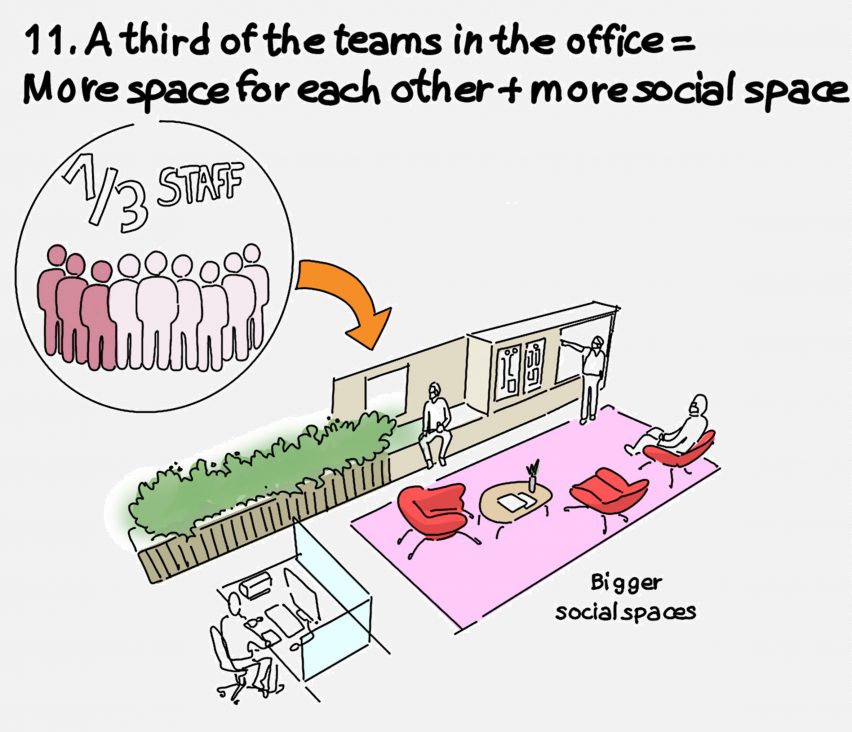
Williamson wants to use the pandemic to make lasting improvements to the office and expects many of the adaptions to the office to be made permeant.
"We have always tried to have a relaxed, friendly studio with a kitchen table feel and this will continue," he said.
"The key is to do these modifications with style and grace and use these unfortunate circumstances to actually improve how we work with climate change in mind," he continued.
"Investment in video conferencing and distance working facilities has paid off during the lockdown and we see future investment being essential to allow greater flexible working."
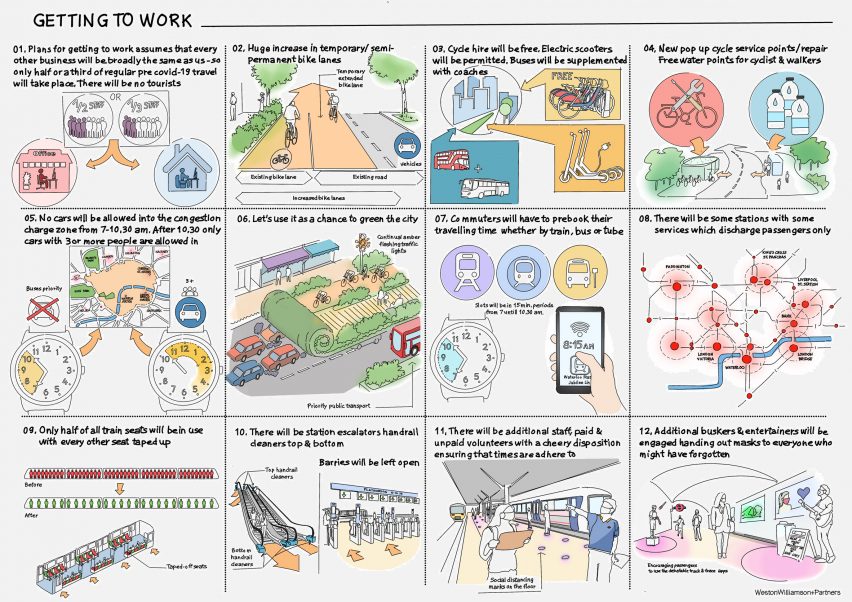
Alongside adapting its office Weston Williamson + Partners is also concerned about how its employees will be able to travel to work safely.
Based on a major survey that the studio carried out last year on commuter attitudes in 10 global cities, it has made a series of proposals to improve London's public transport infrastructure.
These include increasing the number of bike lanes, widespread free cycle hire, banning cars from central London in peak periods, the legalisation of electric scooters and prebooking public transport.
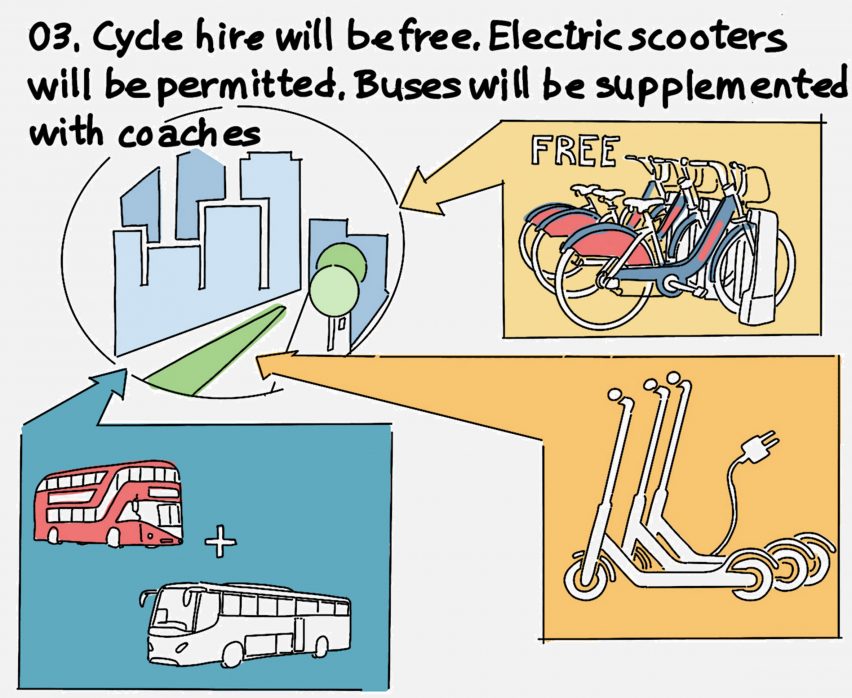
"We have a comprehensive knowledge of how everyone commutes and are encouraging everyone to cycle wherever possible and subsidise electric bike purchases," said Williamson.
"We are very disappointed in the government encouraging everyone to jump in their cars. In some cities that might be ok but in London, cars should be banned between 7-10 within the congestion charge zone with the roads given over to cyclists and electric scooters."
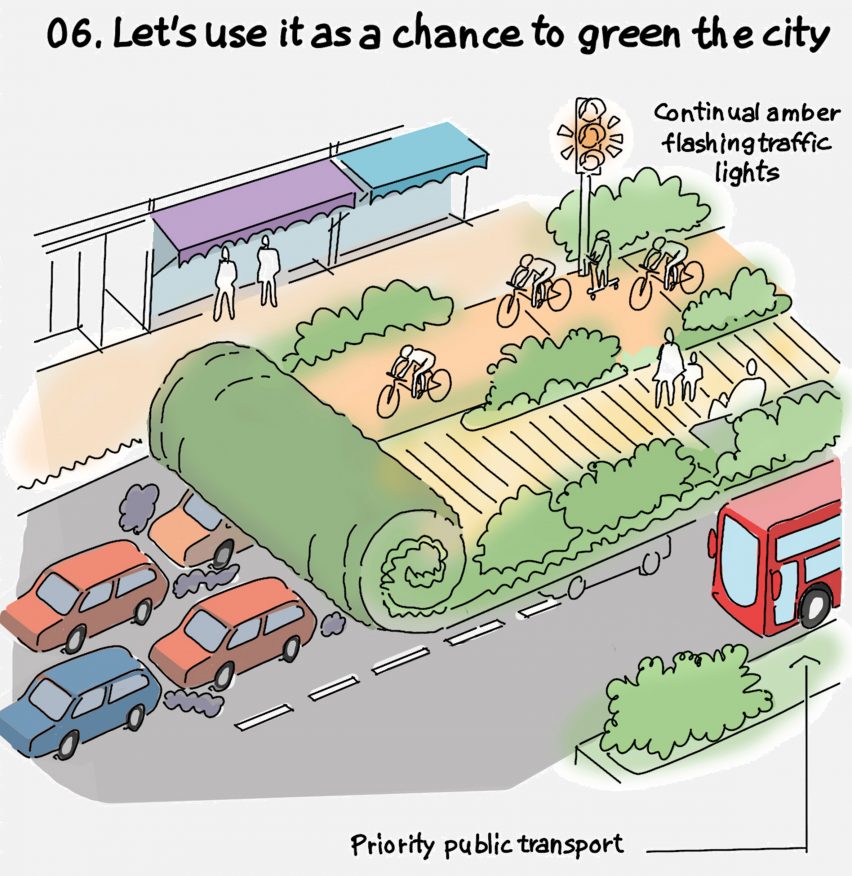
As with its office, Williamson believes that the coronavirus should provide the impetus to improve London and other cities.
"Again, the intention is to implement these changes beautifully – unlike the knee jerk additions to terrorist attacks – to consider how we travel to improve our city in the short term and the planet for the long term," he said.
"Many of these are ideas we should be doing," he continued. "At Weston Williamson + Partners we are passionate about creating civilised cities. 2020 could be the year that a virus that killed so many taught us how to live."
Architects and designers are envisioning socially distanced spaces for after country's coronavirus lockdowns end. Curl la Tourelle Head designed a concept for socially distanced tent classrooms, while Precht designed a socially distanced park.